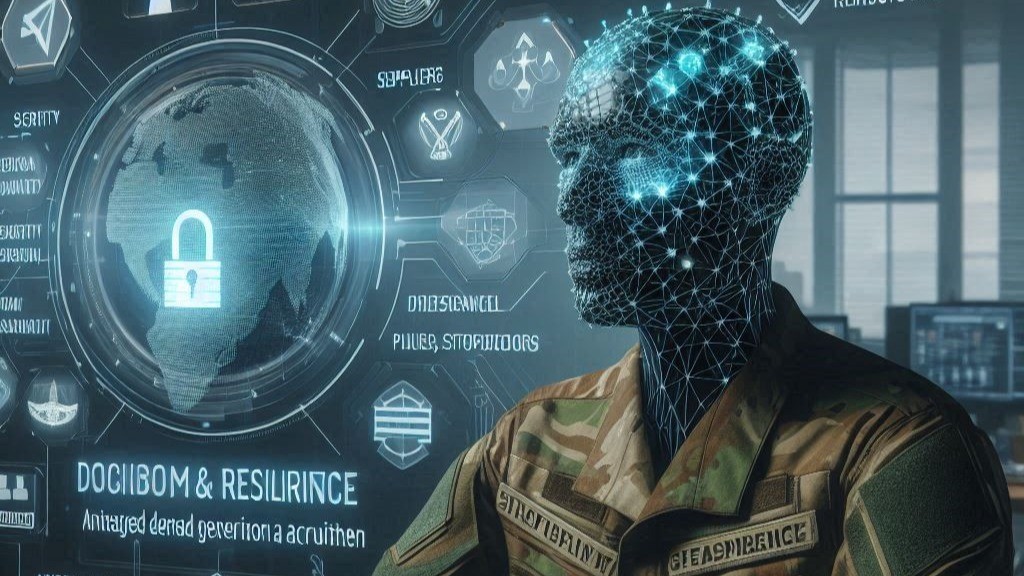In recent years, the field of defense AI has experienced rapid advancements, sparking significant interest and investment worldwide. As we look forward to the upcoming trends in defense AI, it is crucial to understand the potential impacts and innovations that could shape the future of military technology. This article delves into the remarkable developments and possibilities in this dynamic sector.

The Current Landscape of Defense AI
Artificial Intelligence is already transforming military operations, with applications ranging from data analysis to autonomous vehicles. The integration of AI into defense systems has enhanced decision-making processes, improved threat detection, and optimized logistics. However, as technology evolves, new trends are emerging that promise to further revolutionize defense strategies.
AI and Edge Computing for Soldiers
One significant trend is the use of AI combined with edge computing to support soldiers on the battlefield. By processing data locally on devices, soldiers can access real-time insights without relying on distant data centers. This innovation ensures faster and more efficient responses during combat situations. Explore more about this fascinating development in this AI and Edge Computing article.
AI and Drone Swarms
Another exciting trend involves the deployment of AI-driven drone swarms. These groups of drones can perform complex maneuvers, gather intelligence, and execute missions autonomously. The capability to operate in synchrony provides a tactical advantage, making drone swarms a valuable asset in modern warfare. Discover more about this topic in this Drone Swarms article.
AI Innovation Hubs for Defense
Establishing AI innovation hubs is another trend gaining momentum. These hubs serve as centers for research and development, fostering collaboration between defense agencies, technology firms, and academia. By pooling resources and expertise, these hubs aim to accelerate the creation of cutting-edge AI solutions for defense applications. Learn more about these hubs in this AI Innovation Hubs article.
Challenges in Defense AI Implementation
While the potential benefits of AI in defense are immense, there are also challenges to overcome. These include ethical considerations, cybersecurity threats, and the need for robust regulatory frameworks. Addressing these issues is essential to ensure the responsible and effective use of AI in military contexts.
Ethical Considerations
AI in defense raises important ethical questions, particularly concerning the use of autonomous weapons. Ensuring that AI systems comply with international laws and ethical standards is critical to prevent misuse and unintended consequences. The Political Declaration on Responsible Military Use provides guidance on this issue.
Cybersecurity Threats
As defense systems become more reliant on AI, they also become vulnerable to cyberattacks. Protecting AI algorithms and data from malicious actors is crucial to maintain the integrity and reliability of defense operations. Ongoing research and development in cybersecurity measures are vital to safeguard these technologies.
Future Outlook: AI in Air Combat Simulations
Looking ahead, AI is expected to play a pivotal role in air combat simulations. By simulating complex scenarios, AI can help pilots hone their skills and improve decision-making under pressure. This application not only enhances training but also contributes to the development of more effective combat strategies. Find out more about this in the AI in Air Combat Simulations article.
AI’s Role in Modern Warfare
AI’s integration into modern warfare strategies has transformed the battlefield. From predictive analytics to autonomous vehicles, AI technologies are providing a competitive edge. As these systems continue to evolve, their impact on defense operations will only grow. Explore AI’s Role in Modern Warfare for more insights.
Conclusion
The upcoming trends in defense AI highlight a future where technology plays an increasingly vital role in military operations. While challenges remain, the potential benefits of AI-driven innovations are vast, promising to enhance efficiency, safety, and strategic capabilities. As we continue to explore the possibilities, the integration of AI in defense will undoubtedly shape the future of warfare.

FAQ Section
What are the benefits of AI in defense?
AI in defense improves decision-making, enhances threat detection, and optimizes logistics, providing a strategic advantage.
What are the ethical concerns with defense AI?
Ethical concerns include the use of autonomous weapons and ensuring compliance with international laws and standards.
How is AI used in air combat simulations?
AI is used to simulate complex scenarios, helping pilots improve decision-making and develop effective combat strategies.

